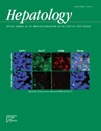Reply†
Potential conflict of interest: Nothing to report.
We read with interest the letter by Gitlin, which raises several important points pertaining to the use of rifaximin for hepatic encephalopathy (HE). Long-term use of any antibiotic does carry the risk of resistance; however, the low likelihood of this appearing with rifaximin due to the nonplasmid nature of its resistance was also cited in the article.1 The U.S. Food and Drug Administration (FDA) approval for rifaximin, granted as a result of the same March 2010 meeting that is mentioned in the letter, comes along with the warning, as with all antibiotics, for the continuous monitoring of patients on this therapy for Clostridium difficile.2
The article referred to the differences in the use of rifaximin across countries, cyclical therapy in Italy, and continuous therapy that is being currently used in the United States and presents possible advantages and disadvantages of both approaches. The precedence and scientific merit of this therapy is evident in the publications and the clinical practice in Italy regarding the use of rifaximin, which was referenced in the article.3, 4 Although the points about the adverse events of lactulose as pointed out in the letter are noted and it is also known from clinical experience that rifaximin is well tolerated in patients, prospective evidence using a large-scale, head-to-head comparison of rifaximin compared to lactulose is still awaited.5, 6 Bass et al. indeed demonstrated that administration of rifaximin with lactulose prevented hospitalizations and HE recurrences compared to administration of lactulose alone in patients who had two prior HE episodes, but this needs further evaluation in patients who have had their first HE episode.7 There is also a huge cost difference between rifaximin and lactulose and the evidence that rifaximin reduces overall costs and hospitalizations outside the selected population in the trial by Bass et al. is from retrospective, single-center studies.1, 8, 9 Therefore, to answer these important questions, the FDA has mandated postmarketing trials comparing lactulose and rifaximin for HE and to study rifaximin in patients who have a Model for End-Stage Liver Disease score ≥19.10 Until these trials are completed, from an evidence-based medicine approach, we stand by the recommendations in the article regarding the role of rifaximin
References
Jasmohan S. Bajaj M.D.*, Oliviero Riggio M.D. , * Division of Gastroenterology, Hepatology and Nutrition, Virginia Commonwealth University and McGuire Veterans Administration Medical Center, Richmond, VA, Department of Clinical Medicine, Center for the Diagnosis and Treatment of Portal Hypertension, Sapienza University of Rome, Rome, Italy.




